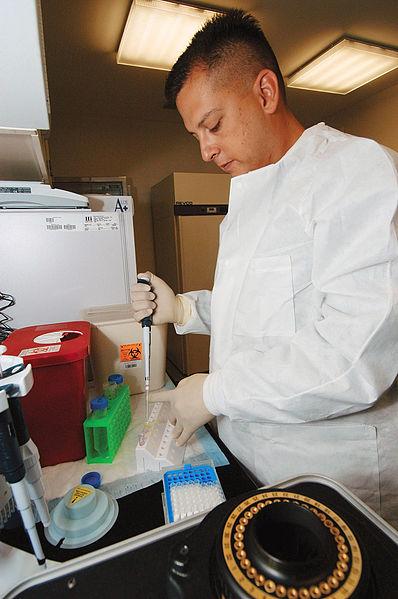
Short of cash these days? A new medical enterprise may have just the cure.
A nonprofit organization in Medford, Mass., is on the cusp of a medical frontier that (at least for now) promises a lucrative outcome for its donor base. And that, is in part, because it can be really hard to find that perfect donor.
OpenBiome, which was launched by Mark Smith and James Burgess in 2012, is in the business of curing clostridium difficile -- a gastrointestinal disorder that has become increasingly more frequent in the last 20 years. It's also become increasingly more difficult to cure, with at least 20 percent of the cases treated lapsing into recurrent symptoms.
The answer that OpenBiome, and researchers from institutions like the Mayo Clinic, have come up with may not seem your standard treatment regimen. But it works.
Each year, more than 500,000 people in the U.S. contract C. difficile, explains OpenBiome on its website. That's because, "[In] a healthy gut community, C. difficile is out-competed by the hundreds of strains of bacteria that are normally present." But with antibiotic therapy for, say, a tooth infection, that bacteria is often killed off. The result is an opportunistic environment where C. difficile can not only live -- but really thrive.
"However, in hundreds of treatments in many independent institutions, fecal transplantation, which reconstitutes the healthy gut community, has been shown to cure over 90 percent of the most recalcitrant C. difficile cases," says OpenBiome.
Yes, you read that right. Fecal microbiota transplantation, or FMT, is the magic potion that's been shown to cure C. difficile, largely by replacing the much-needed friendly bacteria that has been killed off by routine antibiotics.
But, of course, in order for practitioners to administer the gut-friendly flora, they have to get it from somewhere -- or someone -- else, and that's where the healthy donor comes in.
And the healthy payments, too.
Donors who qualify to donate their poop are paid $40 a day, up to five times a week, with an extra $50 for being regularly available all five days. That means earnings of up to $13,000 a year.
But before you start racing to fill out OpenBiome's donor page, perhaps we should stress the operant word again: healthy. Like seriously healthy.
Only about 4 percent of the individuals who apply through the website qualify to donate their poop.
"It's harder to become a donor than it is to get into MIT," said Smith in an interview with the Washington Post. That should say something, since Smith is a graduate of MIT. Another catch: Donors also have to be able to come into the Medford office in person each day.
But even though the money sounds great, for many donors, says OpenBiome's founders, it also comes down to helping those who are sick, such as elderly patients who are bedridden from recurrent illnesses and for whom standard treatment no longer works on C. difficile. According to C Diff Foundation, 30,000 people die of C. difficile-related illnesses each year (U.S. Health and Human Services statistics).
MayoClinic, which pioneered research in this field in 2011, notes that the elderly are particularly susceptible to C. difficile, which often can accompany other illnesses and result in hospitalization. FMT, which can be administered in a variety of ways including by capsule (a recent innovation), has been known to improve a patient's health in a matter of hours to days, making the new treatment invaluable.
FMT is also being considered for a number of other ailments, but those treatments are still being investigated. If healthy microbes can bring a bedridden person back to health, what can it do for people who have other digestive illnesses, like irritable bowel syndrome, Crohn's disease or celiac disease?
OpenBiome, which is a 501(c) 3 nonprofit and is supported by research organizations like Tufts, Harvard and MIT, hasn't delved into this arena yet. But with FMT treatment for C. difficile solidly on the way, and having recently treated its thousandth patient, this new frontier may be only the start of things to come.
Image credit: US Navy/Stephen P. Weaver
Jan Lee is a former news editor and award-winning editorial writer whose non-fiction and fiction have been published in the U.S., Canada, Mexico, the U.K. and Australia. Her articles and posts can be found on TriplePundit, JustMeans, and her blog, The Multicultural Jew, as well as other publications. She currently splits her residence between the city of Vancouver, British Columbia and the rural farmlands of Idaho.














